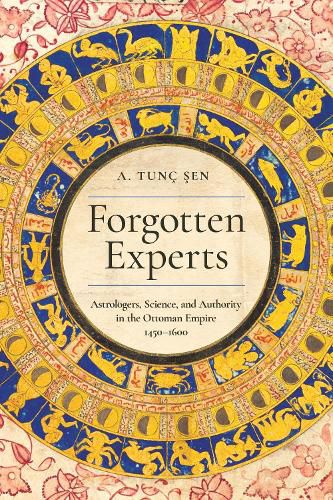Readings Newsletter
Become a Readings Member to make your shopping experience even easier.
Sign in or sign up for free!
You’re not far away from qualifying for FREE standard shipping within Australia
You’ve qualified for FREE standard shipping within Australia
The cart is loading…






Forgotten Experts offers a history of Ottoman court astrologers and traces their shifting authority and prestige over the long sixteenth century. These individuals served the Ottoman court with their expertise in mathematical, astronomical, and astrological sciences, distinguishing themselves from other occult practitioners and esoteric specialists. While both prophecy and prognostication are attempts to map the terrain of the future, the astrologers' work did not claim spiritual weight as a prophecy but relied instead on methods of prediction developed from data and patterns elaborated through technical and scientific writings.
Drawing on extensive manuscript and archival records written in Ottoman Turkish, Persian, and Arabic, A. Tunc Sen writes a history of science, state formation, and bureaucracy within the overarching tale of Ottoman imperial formation and protocols. He invites readers to follow Ottoman court astrologers' fluctuating careers as practitioners of a contentious science and shows how this class of learned individuals constructed its scientific authority despite numerous cultural, societal, and epistemic challenges. In understanding the expertise of court astrologers, we gain insight into the intricate social relations established and maintained between the men of knowledge and the men of rule, between expertise and statecraft, in the early modern Ottoman imperial context.
$9.00 standard shipping within Australia
FREE standard shipping within Australia for orders over $100.00
Express & International shipping calculated at checkout
Forgotten Experts offers a history of Ottoman court astrologers and traces their shifting authority and prestige over the long sixteenth century. These individuals served the Ottoman court with their expertise in mathematical, astronomical, and astrological sciences, distinguishing themselves from other occult practitioners and esoteric specialists. While both prophecy and prognostication are attempts to map the terrain of the future, the astrologers' work did not claim spiritual weight as a prophecy but relied instead on methods of prediction developed from data and patterns elaborated through technical and scientific writings.
Drawing on extensive manuscript and archival records written in Ottoman Turkish, Persian, and Arabic, A. Tunc Sen writes a history of science, state formation, and bureaucracy within the overarching tale of Ottoman imperial formation and protocols. He invites readers to follow Ottoman court astrologers' fluctuating careers as practitioners of a contentious science and shows how this class of learned individuals constructed its scientific authority despite numerous cultural, societal, and epistemic challenges. In understanding the expertise of court astrologers, we gain insight into the intricate social relations established and maintained between the men of knowledge and the men of rule, between expertise and statecraft, in the early modern Ottoman imperial context.